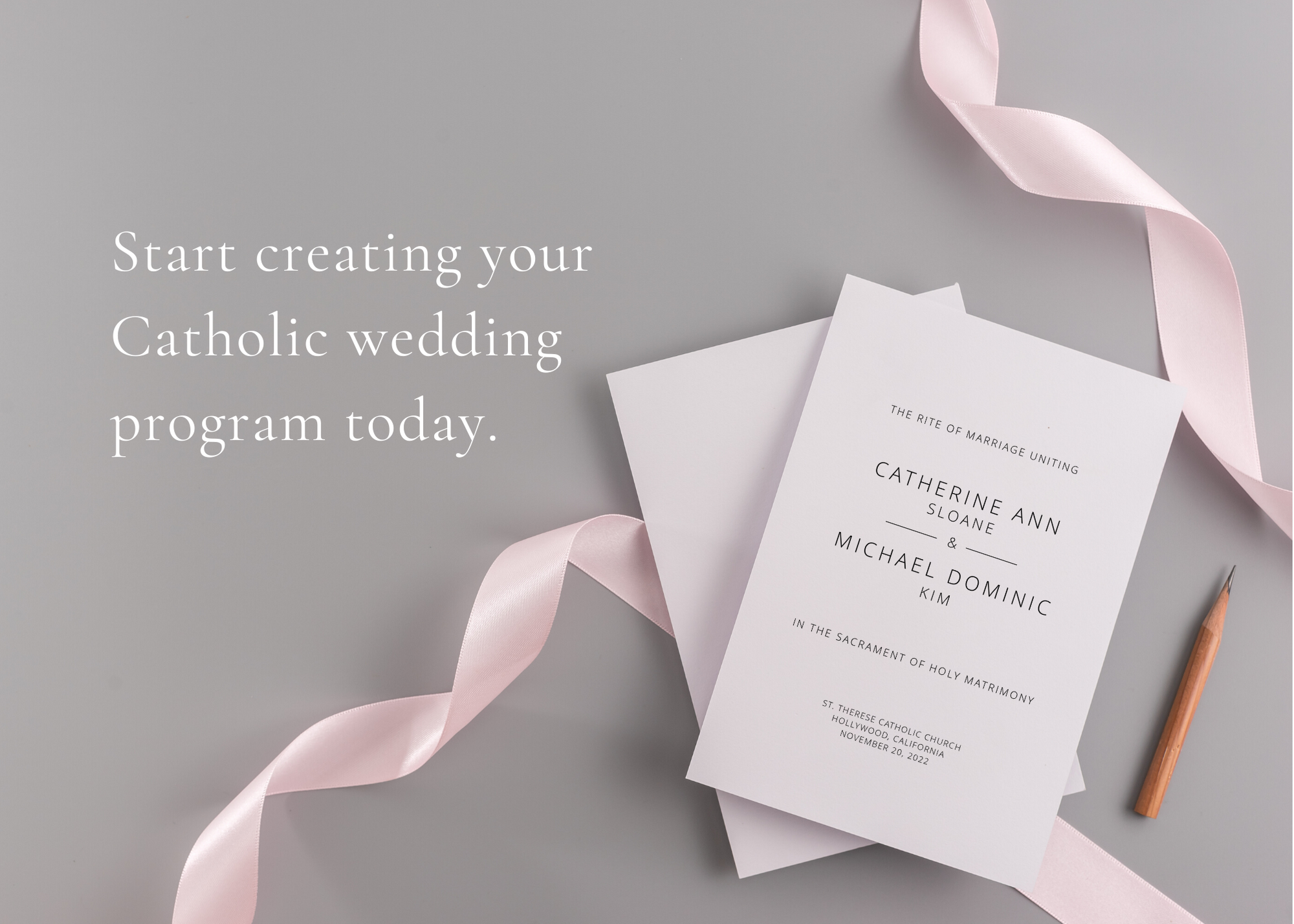Distinctively Catholic Ways to Commemorate the Dead on Your Wedding Day
/As you and your beloved prepare to become one, transforming into your own new family at the altar, matters surrounding your families of origin, and their roles in your wedding plans, tend to highlight the nature of your relationships for better and for worse. One particular wound that might rise to the surface of your hearts is the pain of loss: how can you come to terms with the absence of certain loved ones on your wedding day, and how can you commemorate and honor them, holding them in prayer, as you celebrate?
PHOTOGRAPHY: NICOLE SANDERCOCK PHOTOGRAPHY AS SEEN IN AMANDA + EVAN’S RUSTIC ROSE-COLORED WEDDING
Alongside thoughtful general traditions like lighting candles and displaying photos or albums of those who can’t join you earthside at your wedding, a distinctively Catholic approach to commemorating the dead could look like, first, intercessory prayer, and second, highlighting the uniqueness of every human person. Here, four ways to honor family and friends whom you’ve lost, while actively serving and praying for them:
Invite your wedding guests to pray for the dead.
Particularly if a loved one suffered before his or her death, it’s a common comfort to those left behind to consider that the individual is now at rest or “in a better place.” While, of course, we hold the hope of heavenly freedom for all those we’ve lost, as Catholics we also acknowledge that the road to paradise is merciful, yet just.
Your nuptial Mass presents an invitation to your guests not only to remember those no longer present, but to pray on behalf of their souls. In an In Memoriam section of your Mass program, or during the Prayers of the Faithful, consider writing a brief explanation of intercessory prayer and how it offers an opportunity to continue expressing love and charity for the dead, even when they are no longer with us. Here’s a sample passage from us that you're welcome to include in your text:
When it comes to heaven and eternal rest, Catholics put faith in God’s mercy and justice; that is, “All who die in God's grace and friendship, but still imperfectly purified, are indeed assured of their eternal salvation; but after death they undergo purification, so as to achieve the holiness necessary to enter the joy of heaven.” (Catechism of the Catholic Church [CCC] 1030). Intercessory prayer is a form of petition in service of another: “In intercession, he who prays looks "not only to his own interests, but also to the interests of others" (CCC 2635). As we lift up our intentions at this point in the Mass, we invite you to pray on behalf of [names of those you’d like to commemorate], all souls heaven-bound in purgatory, and all those you have lost, that they might be made holy and enter into the joy of heaven, the Father’s eternal wedding feast.
Raise a glass to a close loved one who can’t attend your wedding in the flesh.
It’s hard to illustrate the reality and emphasize the special nature of each individual human person to those who didn’t personally know him or her, simply because every person is entirely unique and unrepeatable, containing fathomless depths and complexities. If someone you were particularly close to, such as a parent or sibling, is not with you in body on your wedding day, it can be painful to acknowledge that some friends and relatives of your new spouse will never know him or her in this life.
But you can put forth your best effort at bringing this person’s memory to life. Consider delivering a toast describing your loved one to both those who knew him and those who didn’t, expressing the joy you found in your relationship and its effects on you leading to your wedding day. Sharing a glimpse of special individuals gifts others with a revelation of who they are, in a specific, personal way, and what they’ve meant to you.
Carry or use a special item of your loved one’s on your big day.
This might be a sentimental or religious item, like a Rosary or piece of jewelry, but if such an item isn’t an easily available option, brainstorm other family heirlooms or special belongings that might invoke the memory of the person you’ve lost. Ideas you might consider are serving one of her favorite recipes as part of a dessert table, using her china or servingware for you and your spouse’s wedding cake, or displaying a collection of his or hers as part of your reception décor.
Offer the crosses of your engagement and wedding planning for the repose of the souls of those you’ve lost.
What if, among those who aren’t able to be present at your wedding, there’s an individual you shared a difficult relationship with? For those with whom you struggled or those who hurt you in this life--and even for those with whom you didn’t--there is mercy and redemption in offering your trials for their souls. Through a mounting to-do list, spiritual attack, and stress as your big day approaches, you’ll find joy flows from putting another before yourself. Pray for the repose and salvation of the souls of your absent friends and family, and rest in knowing none of your difficulties are meaningless.
We know and understand that significant life events tend to increase the ache of loss. Know of our prayers for you if you’re planning your wedding day without someone you always thought would be with you on the journey, and don’t hesitate to reach out if we can pray for you in a specific way. If there are particular traditions or practices you’ve taken up or included in your Mass and reception plans, ones that have borne healing or fond memories, we’d love to hear them in the comments and on our social media.










